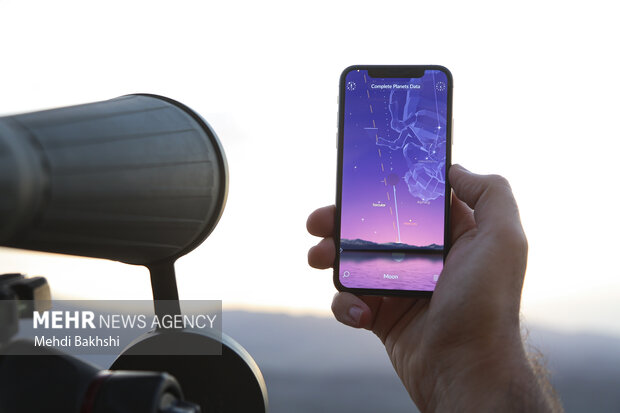MSTF Observatory Launched to Translate Islamic World’s Research for All


The Mustafa(pbuh) Science and Technology Foundation Observatory, inspired by the historic Maragheh Observatory, has set its mission as conveying the scientific achievements of the Islamic world in an accessible language to the general public
Seyed Mohammad Hossein Mirhashemi, Director of Communications and Outreach at the Mustafa(pbuh) Science and Technology Foundation, in an interview with Mehr, stated that, in 2024, the MSTF Observatory was established by combining the Foundation’s outreach capacities and bringing together a group of enthusiasts devoted to promoting science. Before the establishment of the Observatory, the MSTF’s science outreach programs were sporadic and uncoordinated, but with the launch of the Observatory, these efforts are now purposeful and networked, and are organized around a group of students and individuals passionate about promoting science.
According to Mirhashemi, the core mission of the Observatory is to present the Foundation’s scientific and specialized content in plain language to the general public, especially the academic community of Iran and the Islamic world. This initiative mainly seeks to make highly specialized knowledge at the frontiers of science and technology understandable to the public; this is an issue often raised in the form of questions such as "Why should a scientist be awarded?" or "What is the significance of his achievement?"
There is a team of "science promoters" who produce content by studying and reviewing scientific achievements, and engaging in discussions with experts and academics. One of the most important outputs is the Mustafa(pbuh) Prize Science Cafe. Starting in May 2021, Science Cafe’s central theme is the achievements of the Mustafa(pbuh) laureates. The sessions are held in informal and cozy settings, where a professor or science communicator sits down with the audience outside of the conventional university setting.
Mirhashemi also referred to the oldest outreach program by the MSTF, which is now part of the Observatory: the Noor Student Competition. This competition, which started in 2016, is dedicated to honoring a prominent scientist and focuses on a unique theme in each edition. In 2016, the competition honored Ibn al-Haytham, focusing on optical physics; in 2017, Jackie Ying, scientific subjects; in 2018, Quantum mechanics and mechanisms; in 2019, Omar Yaghi (laureate of the 1st Mustafa(pbuh) Prize, energy and materials; and in 2021, Abu Rayhan Al-Biruni, vision experiments and visual errors.
In the past five editions, contestants have participated from 11 countries, including Pakistan, Afghanistan, Algeria, Malaysia, Morocco, India, Turkey, Iraq, Tanzania, Tunisia, and Iran. The 6th Noor Student Competition’s theme is "Nature," and it honors Muhammad Iqbal Choudhary, a winner of the 4th Mustafa(pbuh) Prize. The deadline for the submission of works is August 22.
Regarding other programs of the Observatory, Mirhashemi added: Among the Observatory's new programs is the Sci-Quest, an online campaign which has issued 13 calls for participation so far. Participants are required to reframe a scientific achievement by one of the Prize laureates in simple language and share their content on social media.
He also referred to the Mustafa(pbuh) Prize Observers, a competition inviting science enthusiasts to give their accounts of the Mustafa(pbuh) Prize Week events. This program was first held in Isfahan in 2023. After the call for the contest was published, enthusiasts completed an initial training and started producing content. The top participants advanced to the 5th Mustafa(pbuh) Prize Week, where they appeared at outreach events and produced relevant content. In the end, the best works were selected and introduced, turning this competition into a gathering for those interested in producing scientific content. This year, it will also be held during the Mustafa(pbuh) Prize Week.
Sci-Feast, also a program of the Observatory, which has been held twice so far, was addressed by Mirhahemi. The first Sci-Feast coincided with Yalda Night (a Persian holiday) in 2023, and the second celebration was held on World Science Day, on November 10, 2024, at Pardis Technology Park, with the participation of 400 students from various universities in Iran. This one-day event ended with the unveiling of the busts of the 5th Mustafa(pbuh) Prize laureates.
According to Mirhashemi, in addition to these events, the Observatory also produces media content. Among them are the Observatory podcast—in Persian and English—both of which, through engaging storytelling, present the Mustafa(pbuh) Prize laureates’ achievements in simple terms. The Observatory publication has also published two issues in English and a special issue in Persian. This publication introduces scientific achievements through reports and commentaries by science communicators, conversations with Prize laureates, and interviews with prominent professors from universities in the Islamic world.
Mirhashemi also pointed to the historic Maragheh Observatory, which is the inspiration behind the MSTF Observatory. During the 13th century, scientists from all over the Islamic world and even countries such as China would gather around and conduct joint scientific projects in the Maragheh Observatory. Inspired by this model, the MSTF Observatory has created a platform for science enthusiasts to come together for communication and science outreach activities.
Over the past year and a half, many of the Foundation’s previous programs have been brought under the Observatory’s umbrella and carried out with a defined structure and order, Mirhashemi explained. Now, Sci-Quests are divided into two sections: school students and college students. Science Cafes also host both groups, and the Sci-Feast is a combination of all outreach programs, including Cafe sessions, Sci-Quest, and other programs of the Observatory.
Mirhashemi outlined the Observatory’s outlook for the future as follows: expanding new events and programs and becoming one of the leading hubs for promoting science in the Islamic world.